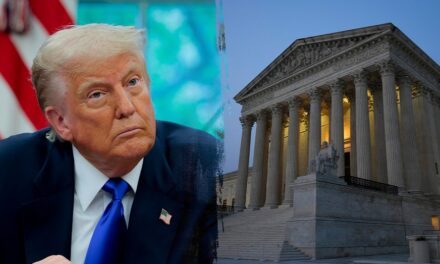In a world where entertainment is constantly evolving, 90s comedy legend Jamie Kennedy has found himself reflecting on the significant changes that have taken place in the realm of comedy over recent years. The actor and stand-up comedian, famous for his roles in iconic films such as “Malibu’s Most Wanted” and “Scream,” has been vocal about the impact of social media and podcasts in shaping a new era of comedy that emphasizes authenticity.
For many, the 1990s were a decade filled with laughter, as television sitcoms and films dominated the comedy landscape. Jamie Kennedy, who burst onto the scene during this golden era, has experienced firsthand the shifts in cultural norms and comedic sensibilities. Today, he expresses gratitude for the tools that contemporary comedians have at their disposal, such as social media platforms and podcasts, which he believes have revolutionized the medium.
In Kennedy’s view, social media has been a double-edged sword for the comedy industry. On one hand, it allows comedians to reach vast audiences, providing an almost immediate feedback loop that can enhance their material. Comedians can directly interact with fans, share their thoughts, and showcase their work without the constraints of traditional media. This democratization of the art form has fostered a space for authenticity that Kennedy champions wholeheartedly.
“The beauty of social media is that you can experiment with your comedy in real-time,” said Kennedy in a recent interview. “You can throw something out there and see what connects with people. If I would’ve had this access back in the day, it would have changed the way I created,” he emphasized, showcasing an appreciation for the overarching connection that modern tools can facilitate between comedians and their audiences.
Furthermore, Kennedy acknowledges that the influx of content on platforms like Instagram, TikTok, and Twitter has encouraged comedians to hone their skills more rapidly. “It forces you to be quick and sharp. You can no longer just work on a material set for a year and then go out; you need to keep putting it out,” he remarks, highlighting the need for comedians to stay relevant and engaged in the fast-paced world of online media.
Podcasts, in particular, have emerged as a vital medium for comedians looking to cultivate their brands. Kennedy has experienced the power of podcasting firsthand, having launched his own podcast, “The Jamie Kennedy Experiment,” where he invites guests, shares anecdotes, and delves into various topics, all while infusing his signature humor. He believes that the podcast format allows for deeper discussions and a more casual atmosphere where comedians can be themselves, free from the polished and often scripted constraints of traditional media appearances.
“Podcasts have redefined how we connect with audiences. People want to listen to real conversations, and they want authenticity. It’s a space where comedians can be vulnerable and share their experiences without the pressures of a stage. That’s where the gold lies,” Kennedy points out, emphasizing the personal connections that can develop among hosts and their listeners.
As a comedian who has navigated different phases of his career, Jamie Kennedy is keenly aware of the power dynamics within the industry. He has witnessed how comedic styles have shifted over the years and is now a proponent of the type of comedy that resonates with genuine experiences and feelings rather than relying solely on shock value or cynical humor. “I think audiences today want something real. They want to laugh, but they also want to feel a connection; they want to know who we are,” he explains.
This evolving landscape has not only transformed the way comedy is performed but also how it is consumed. Kennedy notes that viewers today often seek out content that reflects their values and beliefs. This shift has prompted comedians to develop acts that touch on personal stories, societal issues, and the complexities of modern life. By doing so, comedians can create a sense of community and shared experiences among their audience members.
In his quest for authenticity, Kennedy believes that comedians have a unique responsibility to navigate contemporary social issues without resorting to offense. He asserts that it is crucial for comedians to remain sensitive to the feelings and experiences of others while delivering their material. “We can push boundaries, but we have to be aware of how our words impact others. Good comedy can come from understanding, and we shouldn’t lose sight of that,” he said, underlining the importance of empathy in the comedic narrative.
Despite the advantages presented by social media and podcasts, Kennedy is aware that the digital age comes with its challenges. The prevalence of cancel culture, heightened scrutiny, and the ongoing debate about what constitutes ‘acceptable’ humor can be daunting for comedians. Kennedy acknowledges these pressures but posits that the key to success lies in remaining true to oneself and cultivating a unique comedic voice that resonates with authenticity.
“There are always going to be critics, but remember why you started in the first place. Comedy is meant to be a reflection of life. As long as you are being truthful to your own experiences and perspectives, you’ll find your audience,” he advised emerging comedians navigating a rapidly changing industry.
As he continues to evolve in his career, Kennedy remains optimistic about the future of comedy. With the tools available today, he sees a promising road ahead for those willing to embrace innovation while staying grounded in their authenticity. “Comedy is about adaptation; it’s about finding the joy in the chaos of life, and right now, there’s never been a better time to be a comedian,” he concluded.
In this new era of comedy, Jamie Kennedy provides a fascinating perspective on how social media and podcasts have rejuvenated the industry, fostering an environment where authenticity flourishes. His insights reflect not just a deep understanding of comedy but also a commitment to keeping it alive and relevant amidst the swirling currents of change.
Whether it’s through a viral video or an engaging podcast episode, the heart of Kennedy’s message is clear: comedy is not merely about making people laugh; it is about sharing stories, building connections, and navigating the complexities of human experience with humor and grace. As comedians like Jamie Kennedy continue to adapt to the modern landscape, they pave the way for a rich tapestry of comedic artistry that resonates deeply with a diverse range of audiences.
































